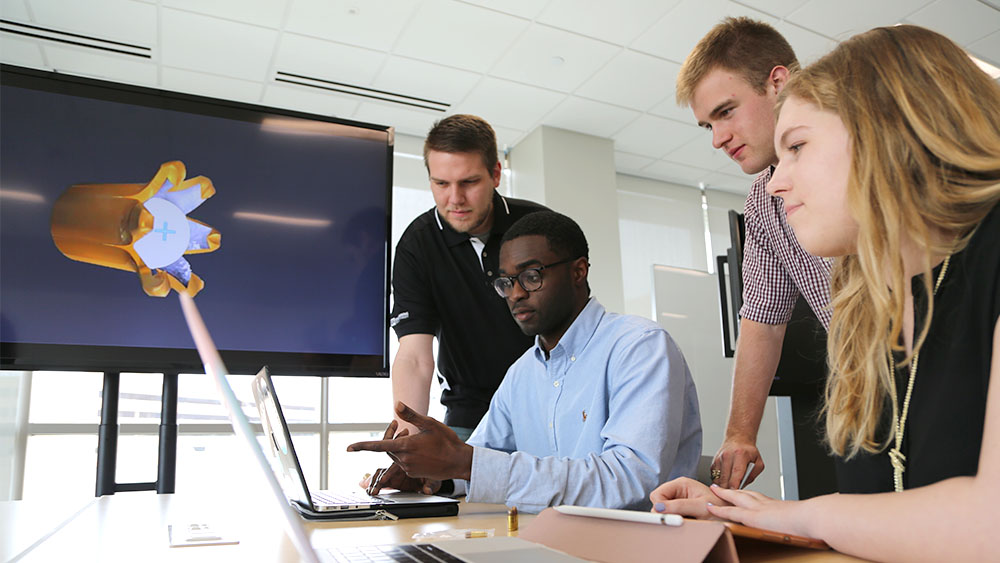
Texas A&M University’s Engineering Entrepreneurship Program (EEP) has created the Concept, Creation and Commercialization (C3) certificate program that allows both undergraduate and graduate students to gain insight into industry and sharpen their entrepreneurial skills.
This 13-hour credit program includes insight into startup business practices, the chance for students to share their ideas with industry, as well as become inspired by former Texas A&M engineering students who have successfully commercialized their own products. Students can uncover what customers are looking for, and in turn design a product that customers value.
Rodney Boehm, director of engineering entrepreneurship, started designing this certificate program in 2016. His goal was to set students apart from their peers by instilling in them an entrepreneurial mindset.
“This is what engineers do,” Boehm said. “They have a concept, they create the solution and then they commercialize it.”
Senior Ben Omonira said he is currently pursuing this certificate with the intention of becoming an individual with initiative who can think innovatively. This opportunity met his goals for self-growth.
“My experience with the C3 program has been insightful and I’ve learned to make assumptions and test them relentlessly,” Omonira said.
Working as a professor of practice in the engineering entrepreneurship program, James Donnell has seen numerous projects emerge from this certificate program.
“From a pacifier with a built-in hygrometer for the early detection of dehydration in infants to a device that more effectively detects feline diabetes, the ideas are all over the spectrum,” Donnell said.
Through the certificate program, Omonira came up with Lazarus, a project developing specialty ammunition that neutralizes threats while preserving life. His project is centered around helping law enforcement disable threats with a lower chance of death from excessive bleeding.
In its sole aim to diversify students’ experiences in industry, the certificate program offers opportunities for them to branch out and make connections that they otherwise could not have made.
Roland Block, associate director of engineering and experiential education with the Career Center, said he loves this program because it goes beyond basic instruction and gives students practical knowledge on how to take the next step.
"So many students want to go into design, but they don’t necessarily have a good understanding of what it takes to design, develop and produce a product, and that’s what this certificate so nicely offers," Block said.
“This is just the very beginning of this program, and I’m excited for what is to come,” Boehm said.